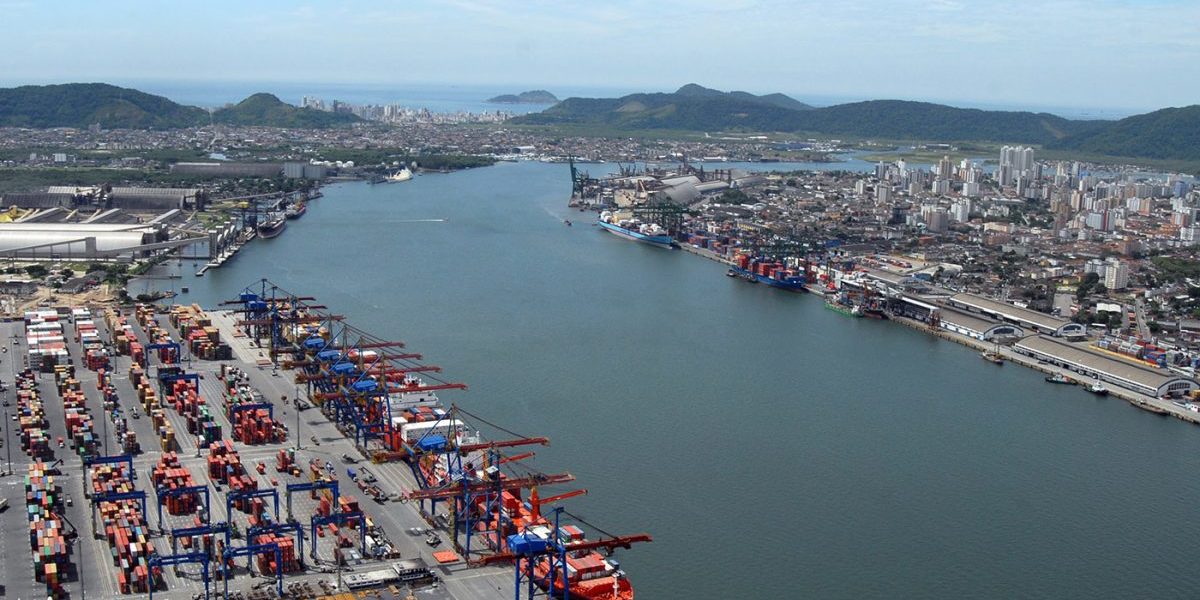
Port of Santos Explores PPP Model to Focus on Operations
Apr, 01, 2025 Posted by Denise VileraWeek 202514
The Santos Port Authority (APS) is considering a new Public-Private Partnership (PPP) model to delegate the maintenance of perimeter avenues, including upkeep services, to the private sector.
The agency’s president, Anderson Pomini, revealed the information firsthand on the EXAME INFRA videocast. According to the authority, the concession’s goal is to allow port management to focus entirely on operations and the logistical development of the largest port complex in Latin America.
The Port of Santos manages the perimeter roads, including paving, lighting, traffic lights, and general maintenance. Pomini emphasized that these functions do not align with APS’s mission. “It makes no sense for the Port Authority to be involved in these functions when its mission is port operations. Our idea is an administrative PPP so that the market handles this service while the Port of Santos, the port authority, focuses on its core mission of port operations.”
The initiative follows the trend of expanding public-private partnerships in the infrastructure sector. This year marks 30 years since the Brazilian Concessions Law was enacted and 20 years since the PPP Law was introduced, both have been increasingly adopted to improve public management efficiency. If confirmed, the administrative PPP will complement other ongoing concessions, such as the Santos-Guarujá Tunnel and the management unification for the Port of Santos shipping channels and the Port of Itajaí. The tunnel project, with 80% public investment and 20% private, includes a concession for operating the transport system upon completion. There is also a planned concession for the Santos and Itajaí channels in Santa Catarina, with an estimated investment of approximately R$ 6 billion under a 30-year contract. Since January 2025, the management of the Port of Itajaí has been formally incorporated into the Santos Port Authority, which is now leading investment plans in the region.
Despite his support for PPPs, Pomini defended President Luiz Inácio Lula da Silva’s decision to keep the Port of Santos under federal control at the start of his administration. While acknowledging that many services can and should be transferred to the private sector, he argues that the strategic management of the port zone must remain under state control. “The Port of Santos is connected to 200 countries and 600 destinations. It plays a crucial role in food security and national security. That is why certain strategic decisions can never be handed over to the market.”
According to him, aspects such as ship queue management and prioritization of cargoes of national interest cannot be guided solely by profit motives. Additionally, the APS president believes that partnerships have helped modernize public management. “We tend to dislike public administration because of recent scandals, inefficiency, and bureaucracy. But we are moving toward a hybrid model where public management benefits from the private sector’s efficiency through well-structured partnerships.”
See bellow the historical long-haul container movement data at the Port of Santos (excluding cabotage). The data is from DataLiner:
Container Movements from Santos Port JAN 2021- JAN 2025 TEUs
Source: DataLiner (click here to request a demo)
The Port of Santos is also advancing several infrastructure projects, including dredging tenders, studies by the National Bank for Economic and Social Development (BNDES), and the implementation of the Vessel Traffic Management Information System (VTMIS), which will optimize maritime traffic control within the port channel. “We recently visited Rotterdam, a global benchmark in port technology. The VTMIS will increase ship maneuvering speeds and improve operational safety. We have faced over 200 challenges to this project, but we have managed to update it and are now moving forward with the contract, expected to be finalized by the end of April.”
The executive also mentioned that the Port of Santos’ modernization includes investments totaling R$ 22 billion in the coming years. “We are talking about a new port within four years, with a deeper channel, the Santos-Guarujá Tunnel, airport improvements, and upgrades to the Guarujá perimeter road. All of this is being structured under a strict timeline to ensure project efficiency and progress.”
With this set of initiatives, the Santos Port Authority asserts that it will establish a more efficient management model, balancing state control over strategic matters with private sector participation in operational and administrative activities.
Source: EXAME
-
Ports and Terminals
Jun, 12, 2024
0
Imbituba Port receives containers destined for flood victims in Rio Grande do Sul
-
Economy
Oct, 17, 2022
0
Brazil: trade balance reaches USD 638.3m in 2nd week of October
-
Meat
Jul, 27, 2022
0
Brazil exports 69,819K t of pork till the 4th week of July
-
Trade Regulations
Jun, 29, 2021
0
WTO fears retaliation against countries providing pandemic subsidies to companies



